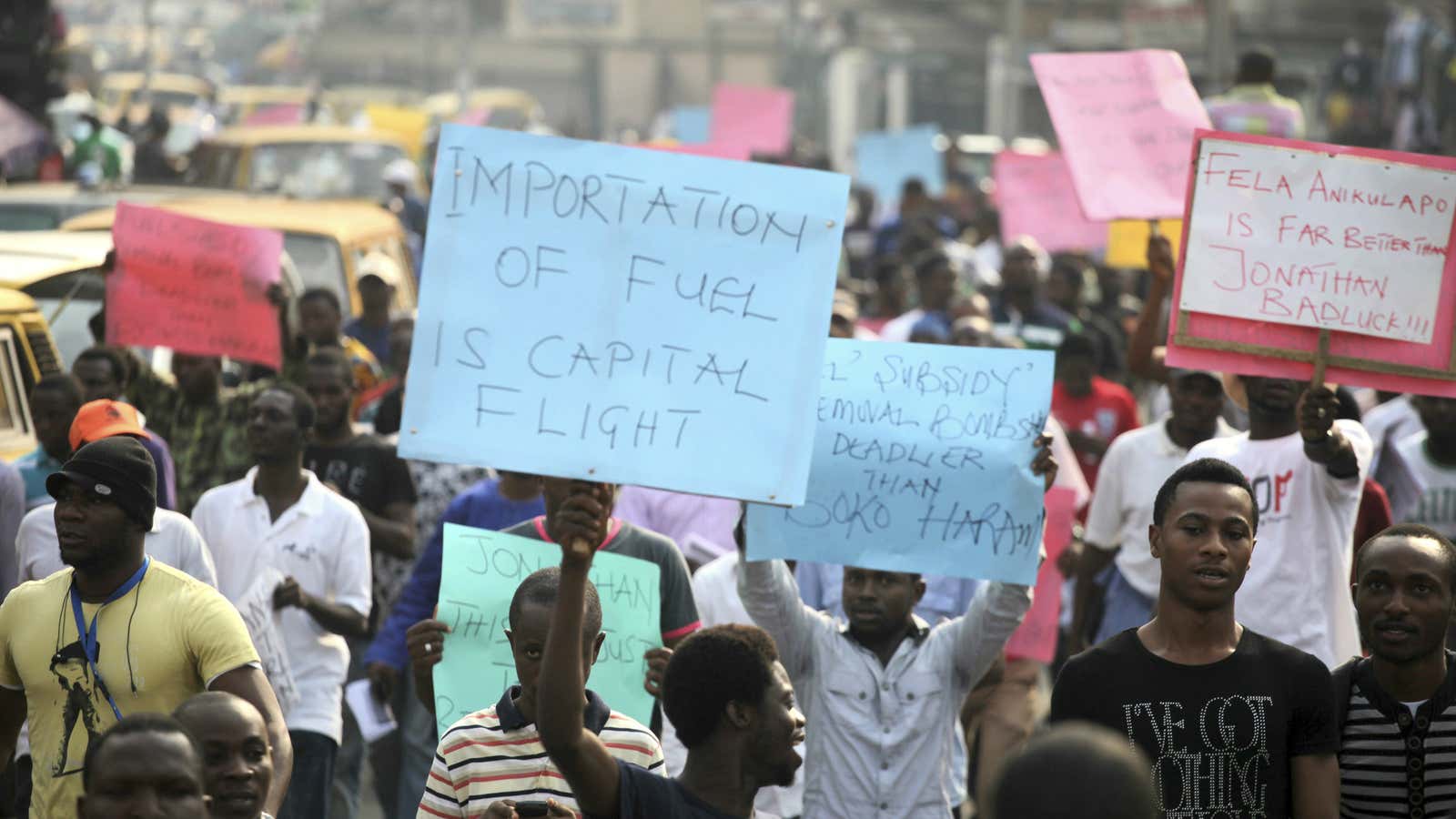In the last few years, fuel subsidies have been a polarizing issue in Nigeria. Put in place as a people-oriented policy to help reduce the price of fuel for Nigerians, the subsidies have become a oft-debated policy as it has burned deep holes in the government’s pockets.
Despite resisting the chance to take advantage of the global drop in oil prices all year, the Muhammadu Buhari government is changing tact. Earlier this week, Ibe Kachikwu, the minister of state for petroleum said the government will remove fuel subsidies next year.
The fuel subsidy was supposed to help ordinary Nigerians, many who live in poverty, to enjoy some benefit from the fact the country is one of the world’s largest oil producers. Officially, Nigeria’s gasoline is subsidized at a price of around 87 naira (40 cents) a liter at the pump. This was a significant subsidy while oil was just under $60 a barrel a year ago. But now at less than $35, the subsidy has essentially been wiped out, by some estimates.
The fuel subsidy has also been a source of controversy as it has been linked to both corruption cases and to fuel scarcity in recent years. The May fuel shortage crisis was caused by strike actions by local petroleum marketers and transporters over the failure of Africa’s largest oil producer to pay bills of up to $1 billion in fuel subsidy payments.
The removal of the subsidy on fuel is another major move from president Buhari who has focused on reforms in the oil sector since taking office. After firing the top brass at the state oil company, NNPC, in August, Buhari has set about instituting a more efficient and transparent mode of operation at the notoriously opaque NNPC. Last month, Buhari’s government also cancelled the Offshore Processing Agreement which could help save $8.7 million daily at current oil prices.
Reforming oil sector
While oil sector reforms are a key agenda for the Buhari government, the reality is that sustaining fuel subsidies came at a very high cost for the government. This year, Nigeria has spent in excess of $5 billion on keeping subsidies in place but given a severe cash crunch and the need to fund a capital expenditure-focused budget for next year, sustaining subsidies did not make economic sense.
Nigeria has a troubled history with its fuel subsidy policy. In January 2012, the Goodluck Jonathan administration abruptly announced a removal of fuel subsidies but the move was roundly rejected by Nigerians leading to nationwide strikes and a near total shutdown of the economy. Given the credibility deficit of the Jonathan government and its perceived lack of transparency, the general sentiment was that whatever savings were made would likely not be judiciously used for key infrastructure projects.
To some extent, those fears have been partly validated by the $2 billion arms fraud scandal ripping through the country and also several allegations of financial mismanagement at the state oil company under Jonathan.
Now, the mood is different. While most understand the necessity for the removal of subsidies, Buhari’s strict anti-corruption stance mostly leaves Nigerians a bit more secure in the knowledge that the billions saved from the removal of fuel subsidies will be optimally used.
